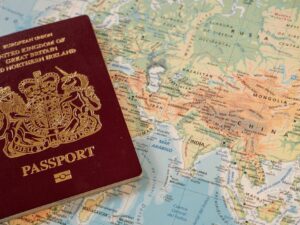
How to avoiding culture shock and relocate successfully
Culture shock is a chain reaction of stages you are likely to experience emotionally and mentally when moving to or staying for long periods of time in a different country. Whilst it can be a difficult time, psychologists say until you experience culture shock you cannot properly adjust to your new culture or environment. Whilst culture shock is mostly unavoidable, by knowing the symptoms and following a few of these simple steps compiled by the editorial team at MyCurrencyTransfer.com, you can help move the process along and learn how to avoid culture shock.
The stages of culture shock
Phase 1 – Excitement
Also known as the honeymoon period, in this stage you’re likely to feel excited and curious about your new surroundings. It’s like being in a new world and your fascination with the language, people, traditions and places is exhilarating. You realise that what you are on is like one great big adventure and it’s easy to be enthralled and enthusiastic about everything and anything.
Phase 2 – Frustration/Rejection
You feel a combination of frustration and disorientation or maybe even anger. This comes from a feeling of isolation and a lack of familiarity. Everything from not understanding the language, accidentally offending someone and not understanding the sense of humour of your new home can be difficult to deal with. The things that you used to say or the way you used to act just doesn’t seem to translate well and you’ve been shouted at for what seemed like no reason and your not sure why. You feel frustrated at the new culture and can’t seem to get your head around all the unspoken rules or why you don’t seem to be getting the same reactions to things you did as when you are back home. You don’t really understand the manners or etiquette of social situations and for the hundred smiles you give out you only receive one in return. Feeling apart from society can make you resentful and leave you feeling rejected.
Phase 3 – Malaise/Depression
The third stage is a feeling of sadness or melancholy. Usually accompanied with a big dose of homesickness, it makes you feel even more isolated and gives you a sense of hopelessness and longing. It will make you feel like nothing will be okay until you’re home and you may even seriously consider going home. A lot of the time though, you won’t even realise it’s connected to being away from home. It could just manifest itself in the form of some implacable, indiscriminate sadness. Everything feels like a weight on top of you and it may increase your reluctance to explore and instead keep you feeling alone.
Phase 4 – Acceptance
Finally, some good news! After a while you’ll begin to accept the new culture for what it is and realise you won’t always know the right answer or say the right thing and sometimes you may not understand the reasoning or thinking and opinions of others but you can accept that things are different and that’s the way it is. You’ll find things you like about the place as opposed to focusing on negatives and bit by bit you’ll feel more integrated into daily life. After the emotional roller-coaster of culture shock, this phase is a real feeling of relief. You may feel like you’re never going to get to this stage but you really just have to wait it out. By following the steps below, you should reach this stage much quicker.
How to deal with the effects of culture shock
Know where you’re going
Researching a country or place before you go is essential in the battle against culture shock. You will want to know how to behave and what to expect. For instance, if you went to a country where no one returned your smiles and did not smile much then you might feel as if they’re resentful towards you. Whereas, if you came across something while researching that said, although friendly, the people don’t smile very much, you might feel more at ease. Knowing the local dress code might also help in what to wear to fit in with the locals. You’ll want to know any important laws and regulations as well as traditions and any strong beliefs the locals have- offending someone by accident and not really understanding why is an awful feeling.
Learn the language
Learning the language is really important as a language barrier can leave you feeling lonely and helpless. Buying phrasebooks and carrying them around with you is a good a good backup for when you can’t seem to get your point across. Forget about your worries of “looking like a tourist” as it’s much more important to be understood.
Learn useful conversational words and common expressions to help socially and valuable questions and answers on important topics like directions and emergency services for a more practical use. Learning things like “Hello” and “Thank-you” help show you’re friendly and have made an effort. Learning the address of where you’re staying is also handy in case you get lost. If you have food allergies then you should learn the word for this. The most useful phrases to know are “Do you speak English?”, “yes”, “no” and “help”.
Explore your new world
It should feel like an adventure! In your spare time make sure your using it to soak in the surroundings and find some favourites. Favourite food place, favourite café, favourite place to sit and relax. It’s like a whole new world and you have the chance to explore it! You won’t like everything about this new place but that’s what it’s like everywhere… even home. Some things you will love and some things…not so much. It’s okay to dislike aspects as long as you accept that there are good parts and bad parts and you should be focusing on the good. Find places that you like and try different food and drink until you find things that you love. Don’t spend too much time indoors. If you feel like you’ve started moping then you should force yourself out and try and find things you like doing until you fall into a happy, comfortable routine.
Write it down
Write thoughts, feelings and reactions down. By doing this and realising all the great things you’ve learnt and come across you can remind yourself that things are actually better than they might seem. Writing things down that caused you negative feelings will help you pinpoint what areas need to be changed to make you feel better. Writing notes down also helps keep things in perspective so you can bring some clarity to your incomprehensible malaise.
Be yourself
Don’t give up the things you love because you’re in a different setting. If you love playing sports then join a team, if you love cooking then join a class or make sure you keep doing it at home. It would be irrational to stop doing things you enjoy just because you’re somewhere new. Take your hobbies with you although don’t be afraid to look into new opportunities and interests that you come across too!
Try and join groups or classes to meet people with similar interests to yours.
The most important thing is to realise just because something is different to what you know doesn’t mean it’s wrong or worse. You have to accept that it may be a different way of life. Try not to make comparisons to how you lived and your new host country as outlining differences often gives you a negative view. You should think of this as a really exciting adventure, a time to expand your knowledge of this culture and yourself as a person.
For more information on relocating successfully, take a look at: How to emigrate overseas successfully – The top ten tips by MyCurrencyTransfer.com. And of course, if your emigrating don’t forget to achieve the best currency transfer deals by using our dynamic comparison tool









